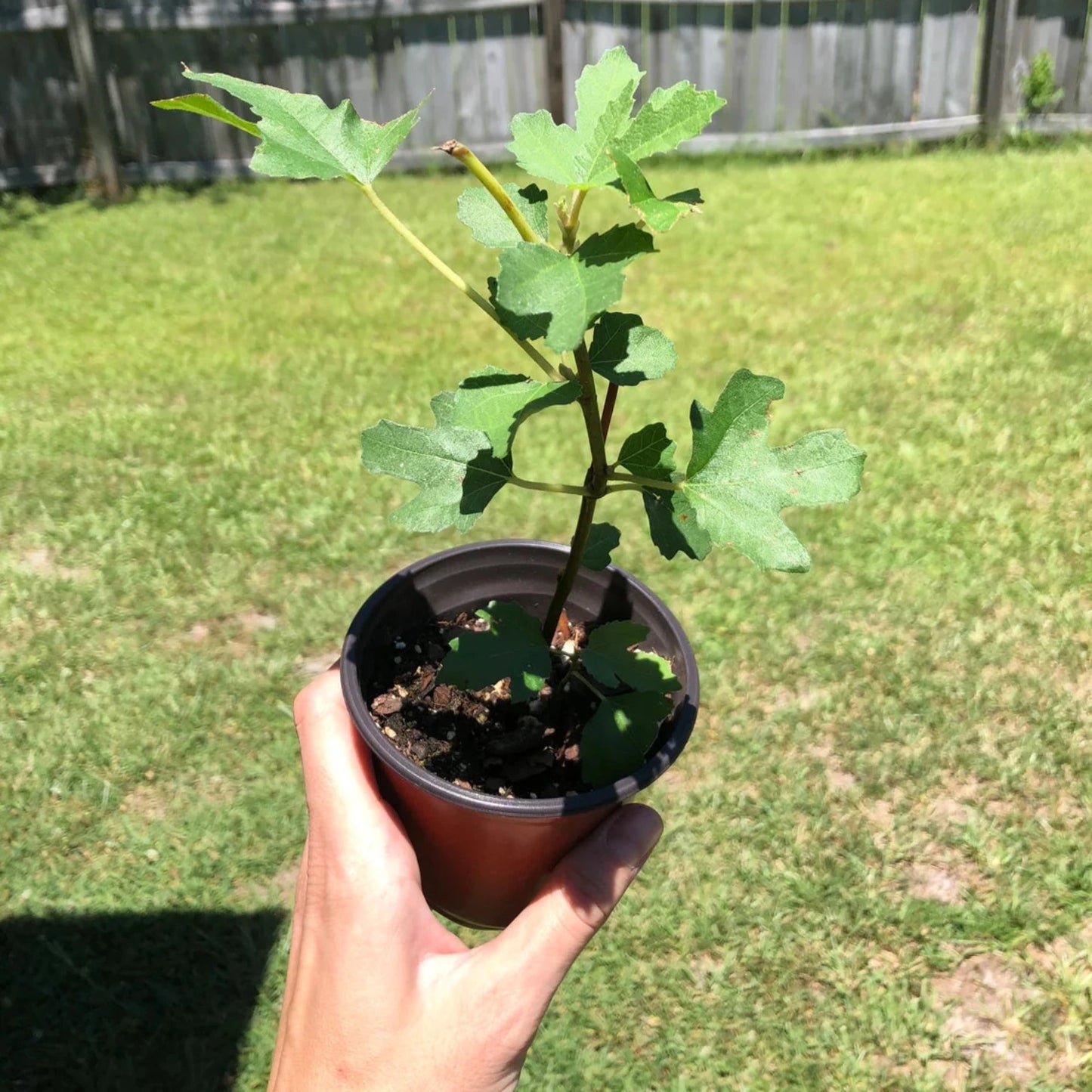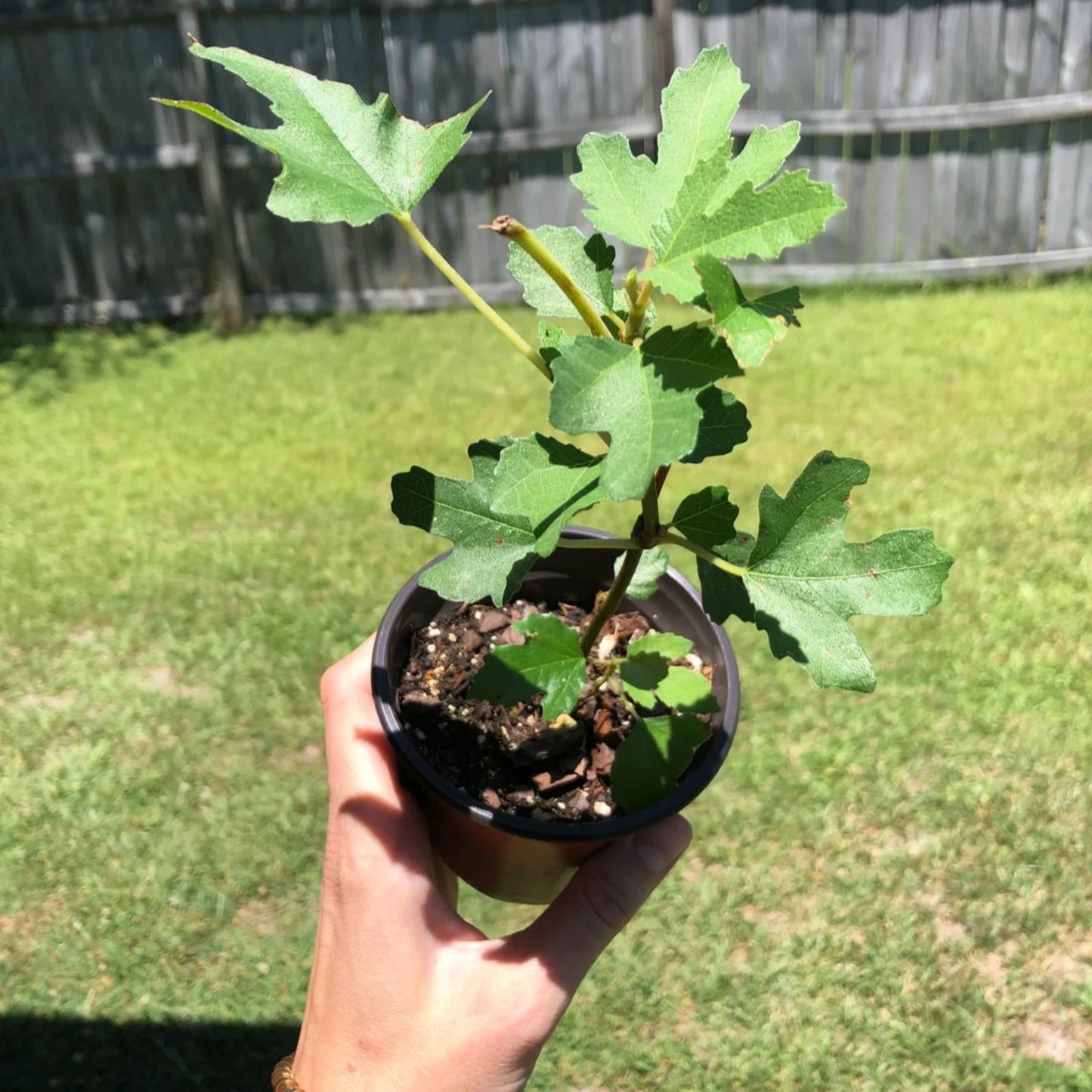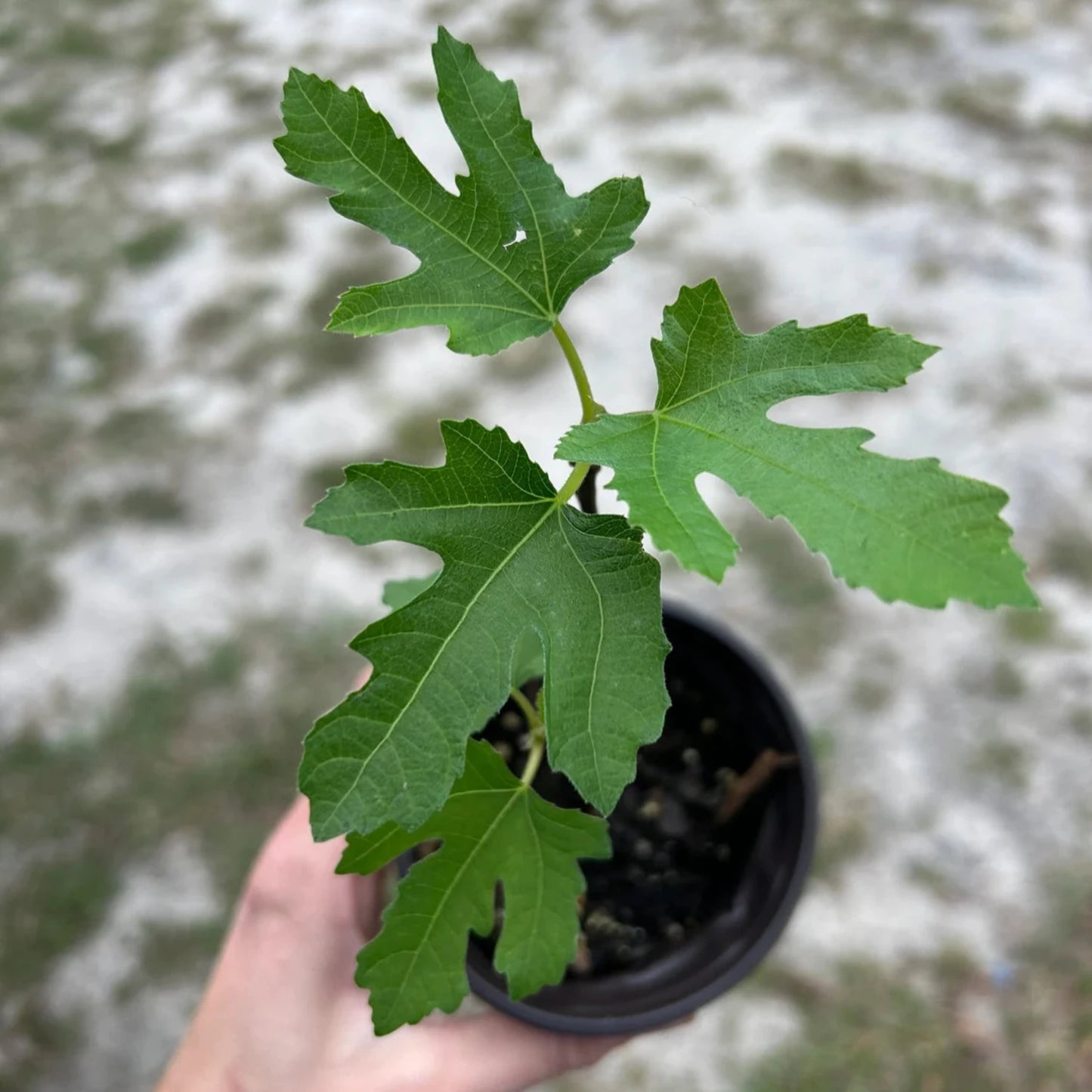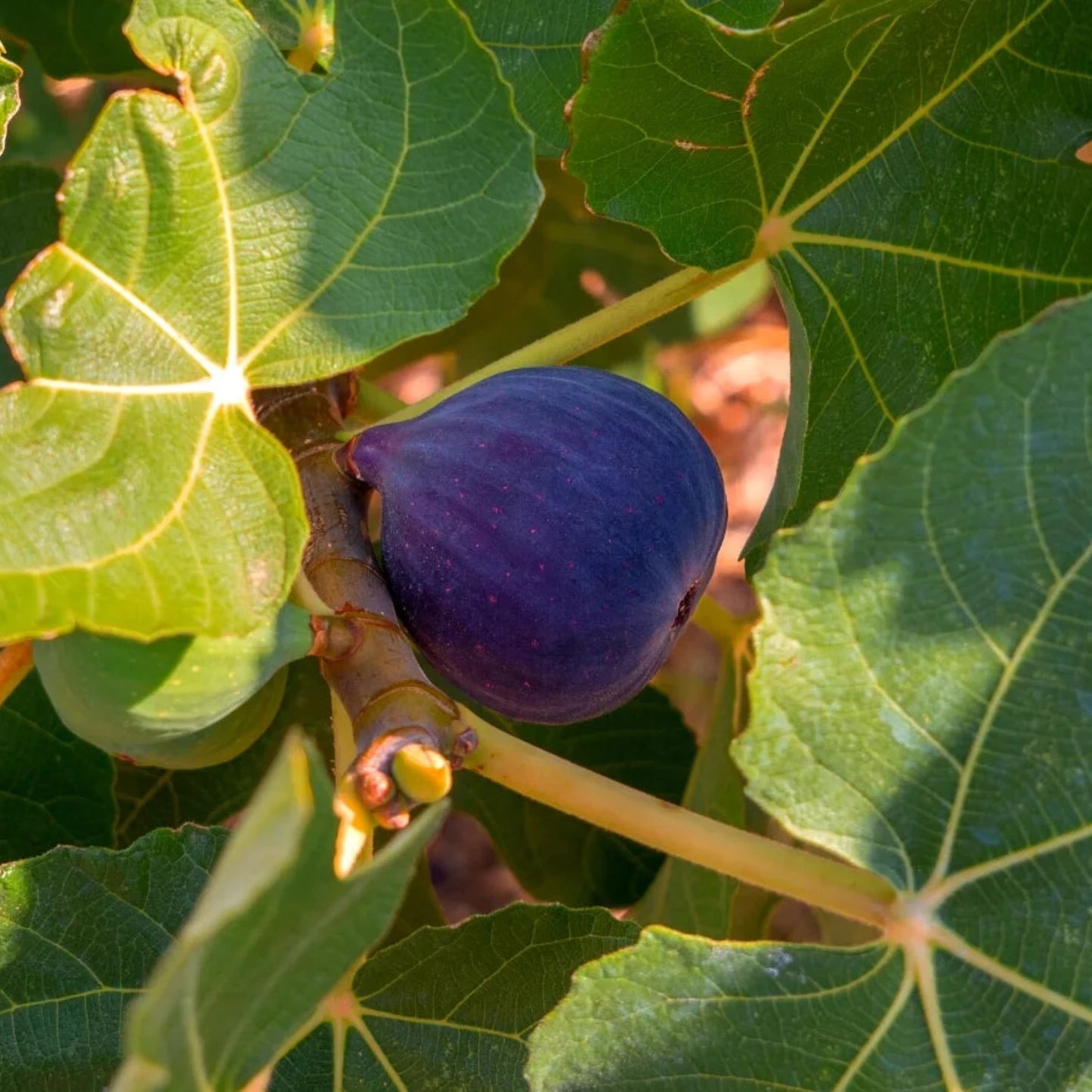1
/
of
5
Fig Tree - 'Black Mission' - Fruiting Fig Tree - Ficus Carica
Fig Tree - 'Black Mission' - Fruiting Fig Tree - Ficus Carica
Regular price
$28.00 USD
Regular price
Sale price
$28.00 USD
Unit price
/
per
Shipping calculated at checkout.
Couldn't load pickup availability
The 'Black Mission' Fig Tree (Ficus Carica) is a hardy and reliable fruit-bearing tree known for producing sweet, dark purple figs with a rich flavor. This variety is one of the most popular figs due to its adaptability, ease of growth, and delicious fruit. It can be grown in containers or directly in the ground, making it suitable for a wide range of gardeners. The Black Mission Fig Tree is a fantastic addition to any home orchard or garden, providing fresh figs from late summer to early fall.
| Attribute | Description |
|---|---|
| Common Name | 'Black Mission' Fig Tree |
| Scientific Name | Ficus Carica |
| Size | Varies depending on the stage of growth |
| Light Requirements | Thrives in full sun, requiring at least 6-8 hours of direct sunlight daily for optimal fruit production. |
| Watering Needs | Water regularly during the growing season, but allow the soil to dry out between watering sessions. Drought-tolerant once established. |
| Soil | Prefers well-draining soil. A sandy or loamy mix is ideal for healthy growth and fruit production. |
| Growth Habit | Can be grown as a large shrub or small tree, typically reaching 10-30 feet tall when planted in the ground. |
| Fruiting | Produces medium to large, purplish-black figs with a sweet, rich flavor. Fruit is typically harvested from late summer to early fall. |
| Cold Hardiness | Hardy to USDA zones 7-10. Can be grown in colder zones with winter protection or when grown in containers and brought indoors during freezing temperatures. |
| Maintenance | Low-maintenance once established. Regular pruning is recommended to shape the tree and encourage fruit production. |
| Propagation | Easily propagated by cuttings. Can also be grown from seeds, though cuttings are the preferred method for quicker fruiting. |
| Temperature | Prefers warm temperatures between 60-85°F (16-29°C). Protect from frost during cold months. |
| Harvesting | Fruits are ready to harvest when they turn deep purple or black and are slightly soft to the touch. Best eaten fresh or dried. |
| Uses | Can be eaten fresh, dried, or used in jams, desserts, and savory dishes. A versatile fruit for culinary uses. |
| Ideal Placement | Perfect for outdoor gardens, patios, or container growing. Can also be grown indoors in large containers with ample sunlight. |
Share










